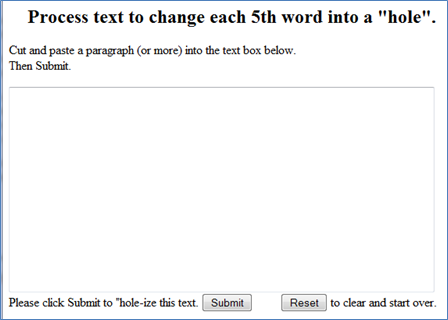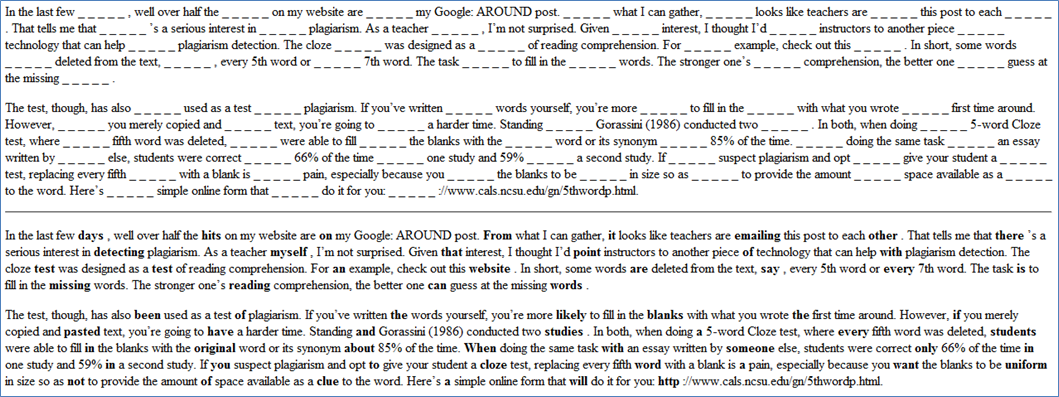Testing for Plagiarism: The Fifth Word Test
In the last few days, well over half the hits on my website are on my Google: AROUND post. From what I can gather, it looks like teachers are emailing this post to each other. That tells me that there’s a serious interest in detecting plagiarism. As a teacher myself, I’m not surprised. Given that interest, I thought I’d point instructors to another piece of technology that can help with plagiarism detection.
The Cloze test was designed as a test of reading comprehension. For an example, check out this website. In short, some words are deleted from the text, say, every 5th word or every 7th word. The task is to fill in the missing words. The stronger one’s reading comprehension, the better one can guess at the missing words.
The test, though, has also been used as a test of plagiarism. If you’ve written the words yourself, you’re more likely to fill in the blanks with what you wrote the first time around. However, if you merely copied and pasted text, you’re going to have a harder time. Standing and Gorassini (1986) conducted two studies. In both, when doing a 5-word Cloze test, where every fifth word was deleted, students were able to fill in the blanks with the original word or its synonym about 85% of the time. When doing the same task with an essay written by someone else, students were correct only 66% of the time in one study and 59% in a second study.
If you suspect plagiarism and opt to give your student a Cloze test, replacing every fifth word with a blank is a pain, especially because you want the blanks to be uniform in size so as not to provide the amount of space available as a clue to the word. Here’s a simple online form that will do it for you: http://www.cals.ncsu.edu/gn/5thwordp.html.

When I paste the top of this blog post into the form, and click ‘submit,’ this is what I get. The top half can be copied, pasted, and printed out for your student to complete. The bottom half shows the missing words in bold print for easy scoring.

A quick word of caution: If students know they will be given this test in advance, they will have an opportunity to review the paper they submitted. The more they read over it, the more words they are likely to guess correctly.
Standing, L. & Gorassini, D. (1986). An evaluation of the Cloze procedure as a test for plagiarism, Teaching of Psychology, 37, 130-132.